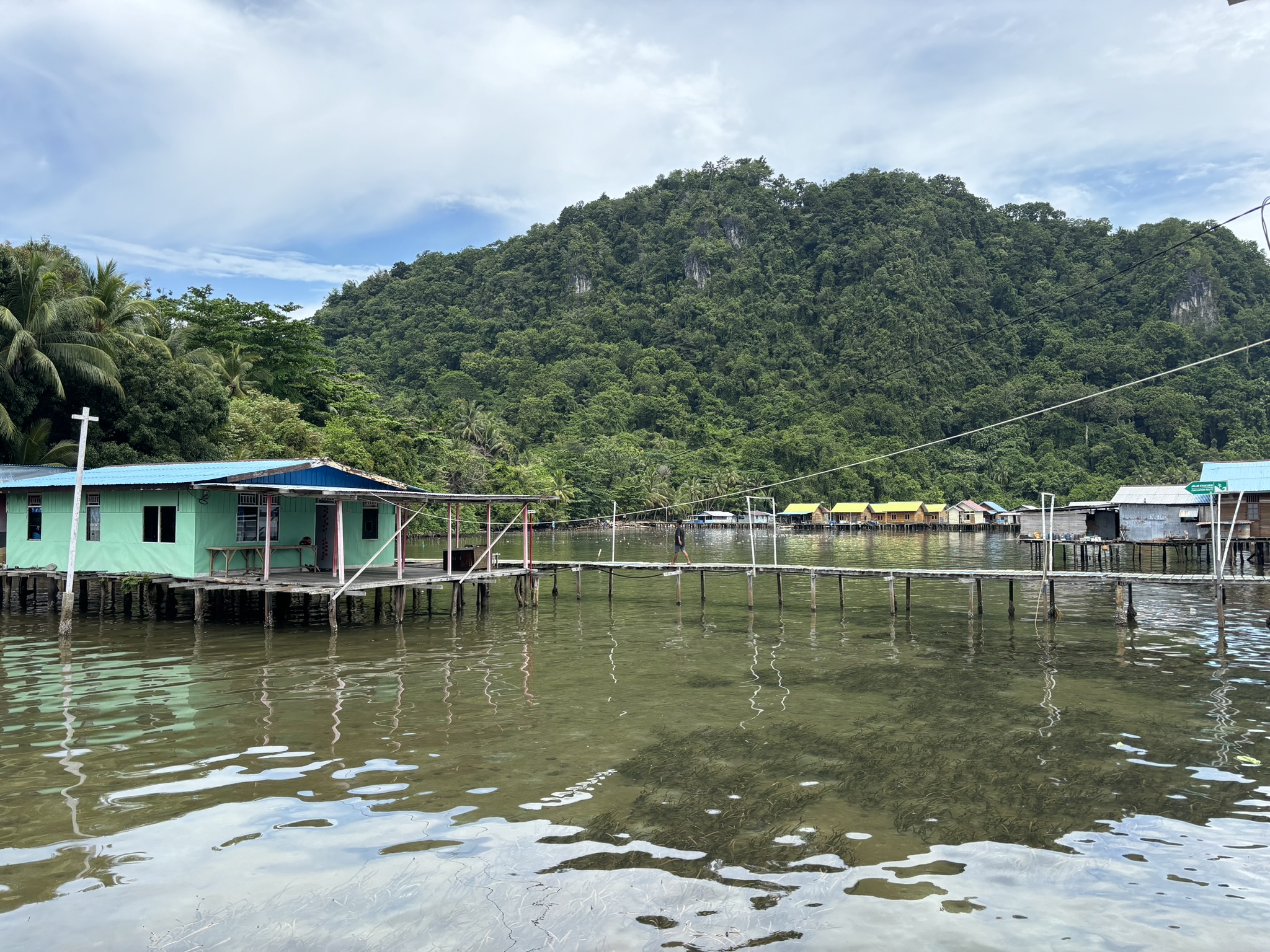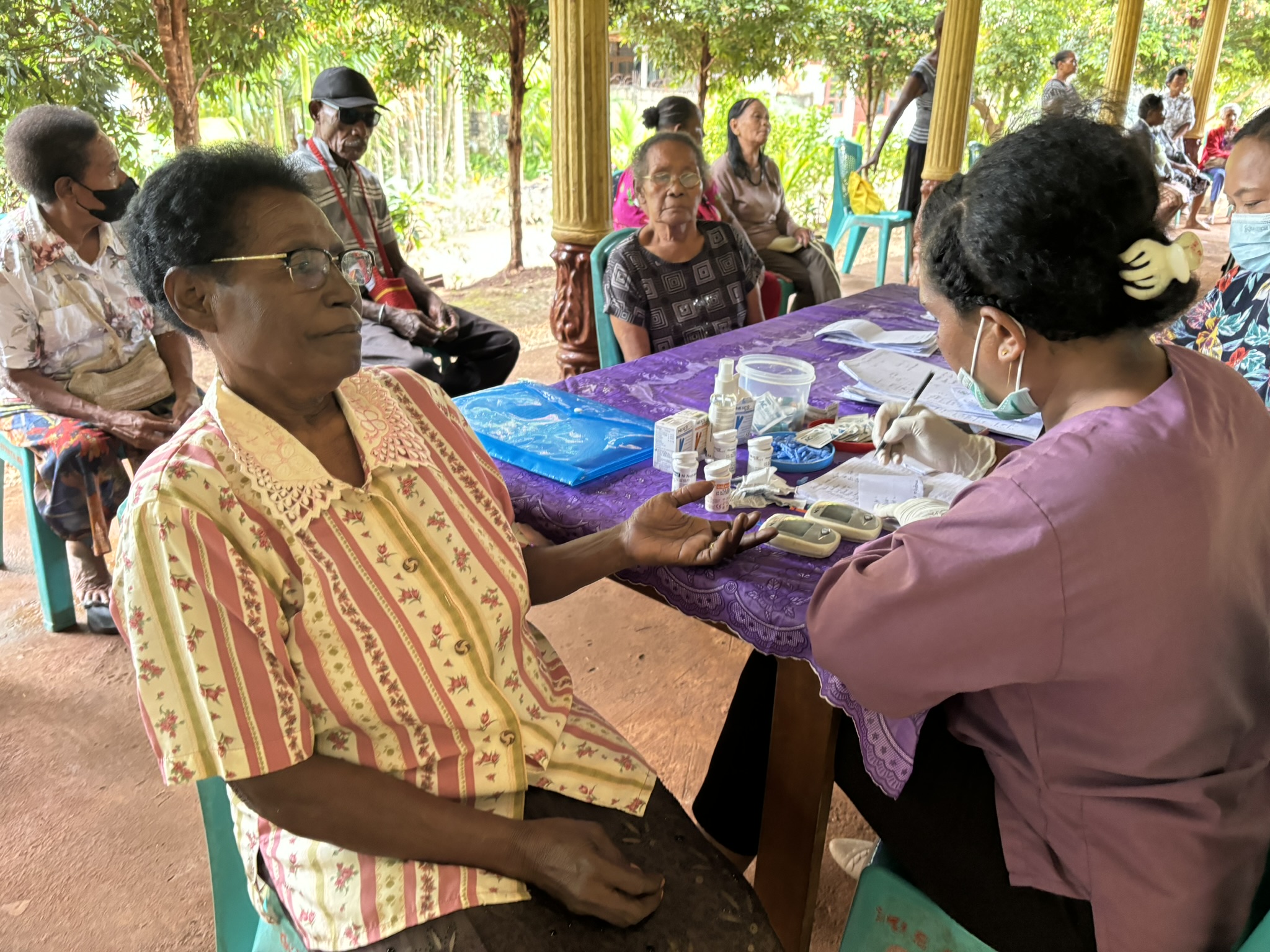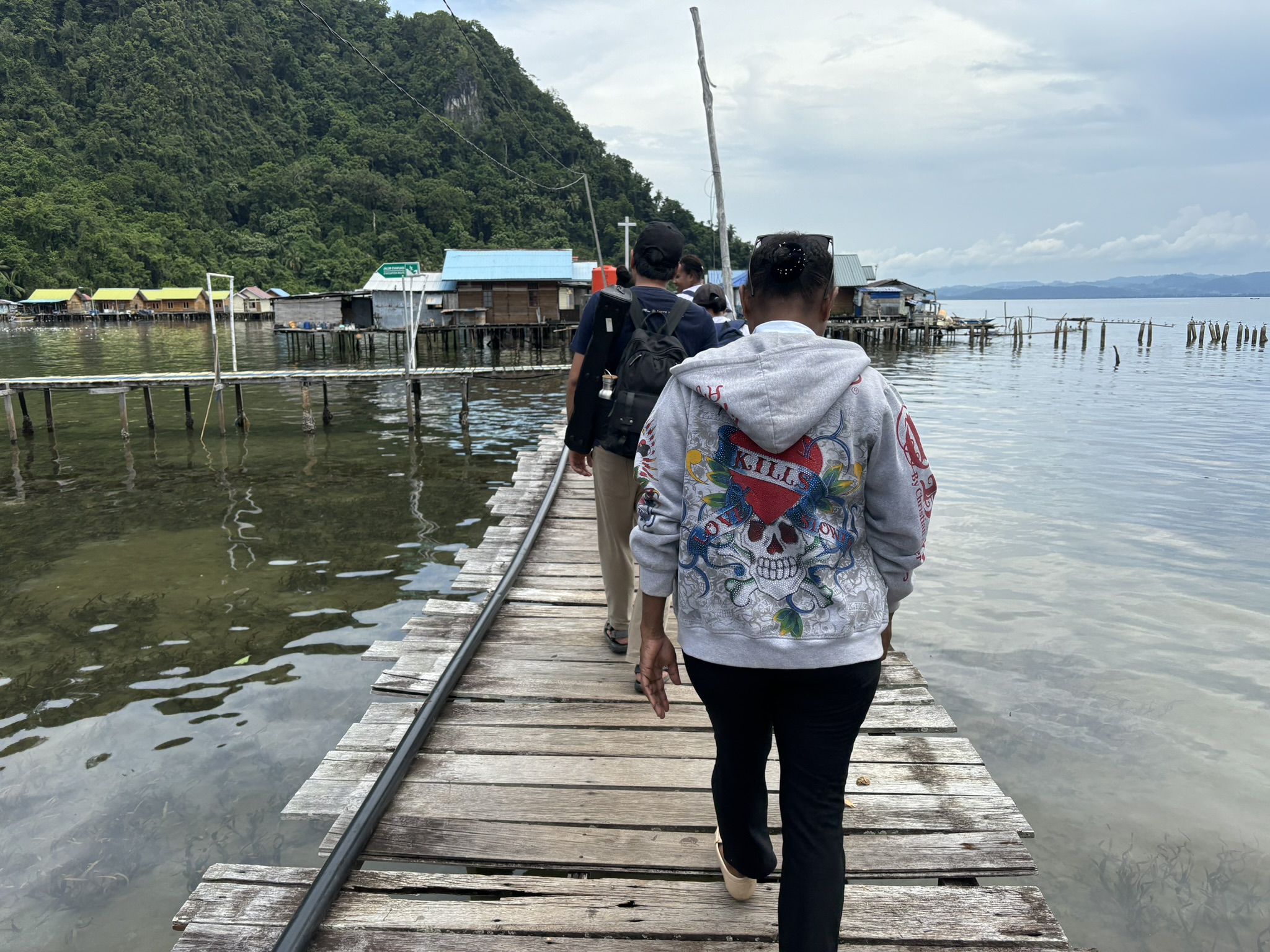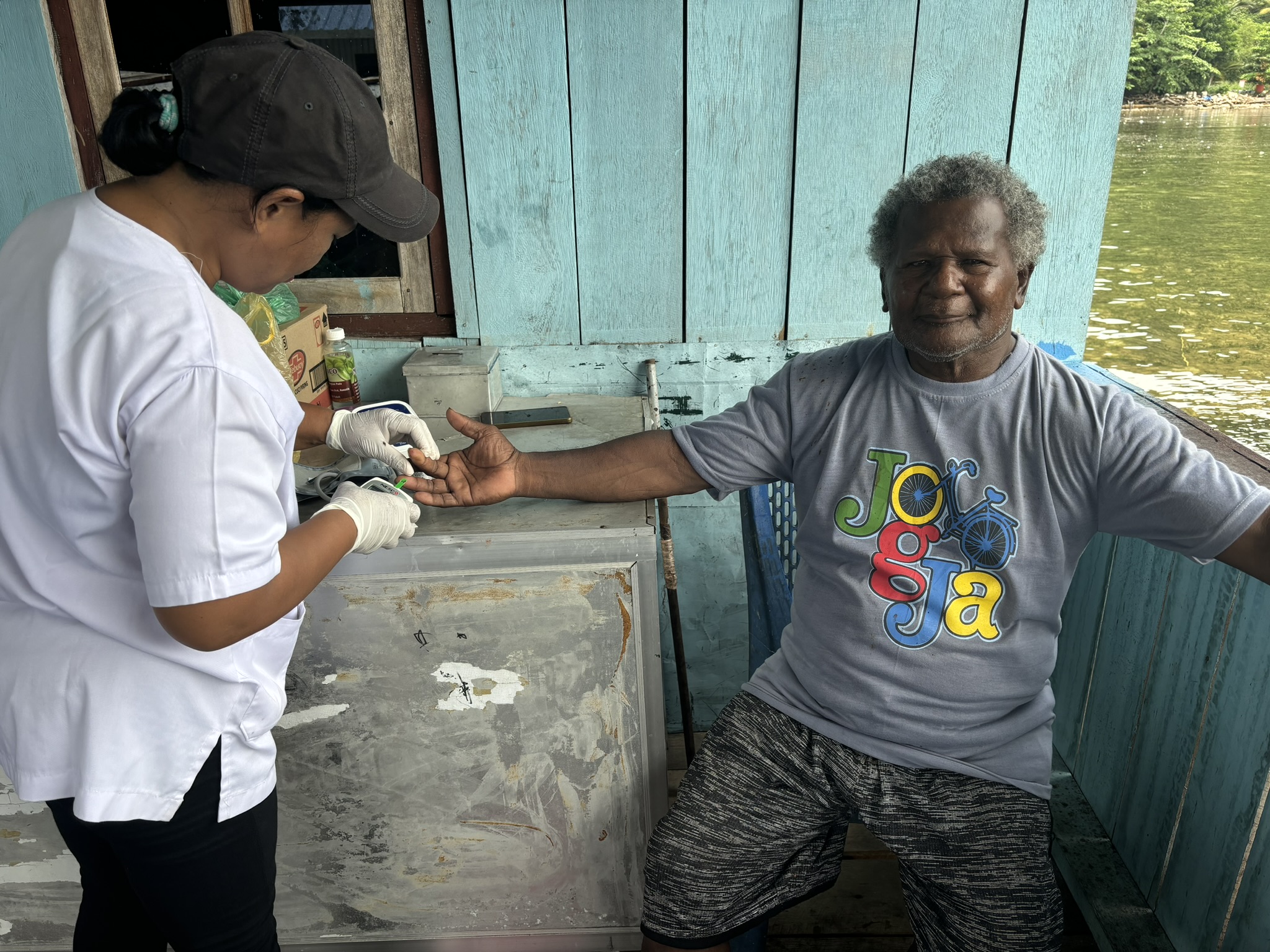In the Northeast of the city of Jayapura, Papua, lies Kayu Batu, a quiet coastal neighborhood where half of its residents live in stilt houses that are built above the water and in hilly areas. It is home to around 50 elderly people, many of whom require regular healthcare check-ups as they suffer from age-related conditions such as high blood pressure, high cholesterol, and gout. These illnesses often limit their mobility to conduct daily activities.
A view of Kayu Batu Village in Jayapura, Papua.
To support the well-being of elderly people around Indonesia, the Indonesian government has introduced a policy where every elderly person has free access to regular healthcare check-ups through POSYANDU LANSIA. This program is a village-level elderly care that provides routine healthcare check-ups and monitoring, as well as other types of support such as knowledge sharing to maintain health and distribution of food and staple goods. POSYANDU LANSIA is typically held once a month with the support of healthcare workers from the nearest facilities, and it is funded fully by the local government.
Despite the importance of POSYANDU LANSIA, this program has not been implemented widely around the country. Many areas in Indonesia are unable to conduct POSYANDU LANSIA routinely due to limited resources. Furthermore, the location of POSYANDU LANSIA is typically far from where elderly people live. Kopernik’s 2023 Unmet Needs Report, Aging Better: Pathways to Enhance Wellbeing of Elderly Population in Indonesia, confirmed this reality, revealing that 72% of elderly individuals do not have adequate access to POSYANDU LANSIA. Even those who do have access, often still require assistance from their caregivers to participate in POSYANDU LANSIA due to limited mobility.
This lack of resources was also evident in Kayu Batu. For many years, the POSYANDU LANSIA in the area was not running optimally due to limited funding and personnel. This changed when the Efrata Kayu Batu Indonesian Christian Church (GKI Efrata) stepped in to provide private support. With additional resources and funding, healthcare workers and health cadres have been able to conduct monthly healthcare check-ups on the elderly residents in Kayu Batu.
A POSYANDU LANSIA session in Kayu Batu, supported by GKI Efrata, providing routine healthcare services for the elderly.
Still this support has not been enough. Over the past year, attendance at the POSYANDU LANSIA has declined sharply. On average, the attendance rate was only 50% from the total elderly population in Kayu Batu. The greatest barrier appears to be the distance many must travel to reach the location of the POSYANDU LANSIA.
Despite having the POSYANDU LANSIA in the area, Kayu Batu is still a large residential area with difficult terrain. Residents living in stilt houses must walk a long distance to reach the shore, then climb roughly 50 steep steps, followed by a 40-minute uphill walk to reach the POSYANDU LANSIA location. This is especially demanding for elders like Bapa Betuwel Sibi, who suffers from gout and struggles with mobility. Climbing the stairs leaves him breathless, and long walks cause sharp pain in his joints. As a result, he often chooses not to attend, missing out on the gout medication he needs, further worsening his condition.
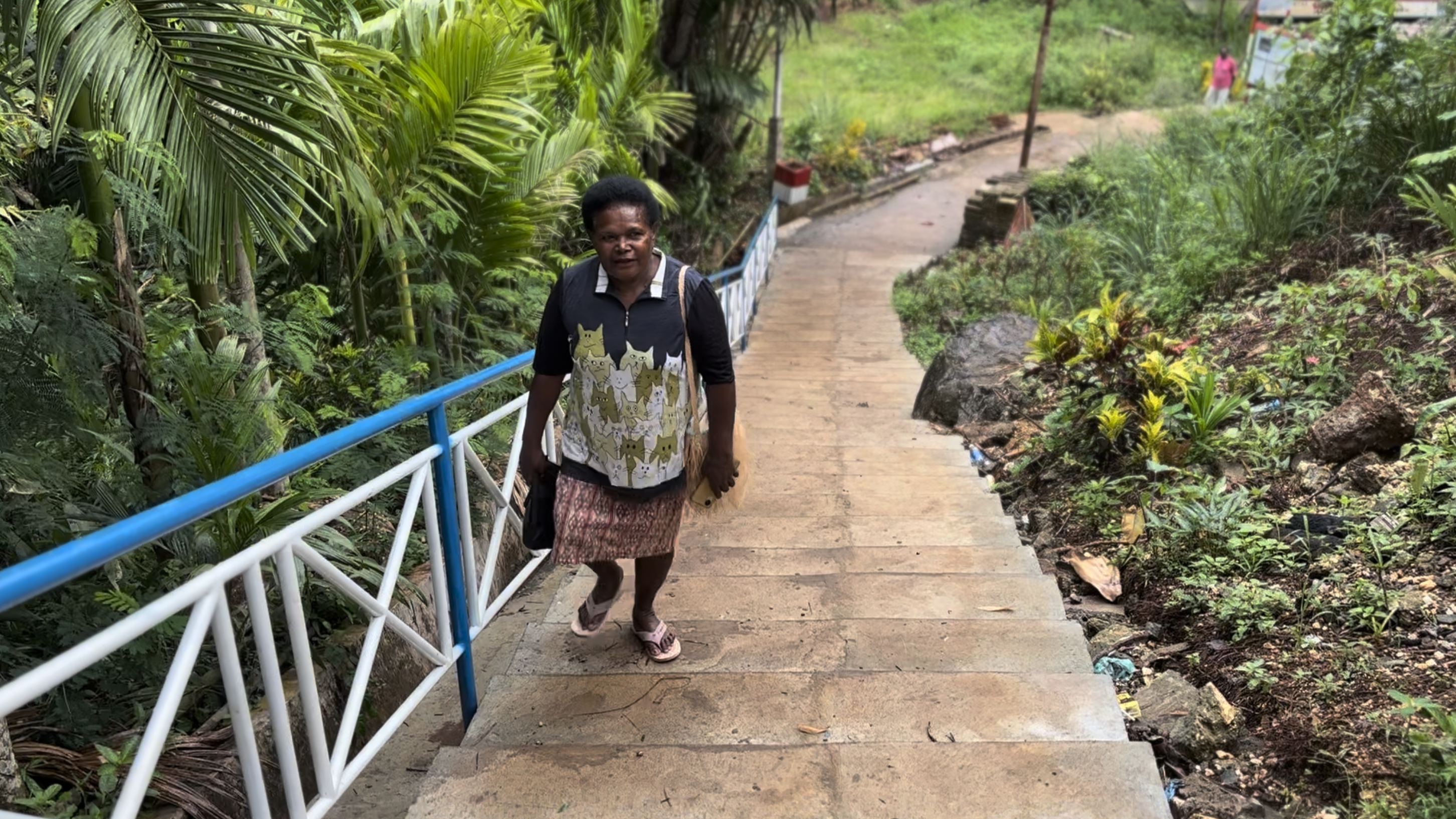
A long and challenging journey taken by elderly residents to reach the POSYANDU LANSIA location.
In response to the challenges highlighted in our Unmet Needs Report on the Elderly Population and to address the problem of low attendance at POSYANDU LANSIA, Kopernik conducted a small-scale experiment in Kayu Batu to test the effectiveness of a mobile clinic in increasing the number of health check-ups of the elderly population in the area. We worked together with the healthcare workers from Puskesmas Tanjung Ria (the local health institution) to conduct health check-ups at home, a well-being check on the elders, and medicine adherence monitoring to determine whether the mobile clinic visits can lead to better health outcomes.
Although the mobile clinic ran for just three months, the results were encouraging. The initiative received positive feedback from key stakeholders, including the traditional village council, the GKI Efrata church, the local healthcare facility, and the Kayu Batu community. Even within this short timeframe, we observed meaningful changes among the elderly.
One example is Bapa Markus Makanuay, who suffers from anemia. His condition made it difficult for him to leave the house, as exposure to the sun would cause him to faint or experience heavy nosebleeds. With few family members available to accompany him to the clinic, his condition gradually worsened over time. But through the mobile clinic visit, Bapa Markus received proper medication, gained strength and was eventually able to go for a short walk – something he had not been able to do for months. We hope that we continue to see this kind of positive impact with more mobile visits programs in more areas.
A healthcare worker conducting a home visit to monitor an elderly resident’s blood pressure as part of the mobile clinic initiative.
Working with the elderly community has taught us profound lessons in empathy, patience, and care, lessons we’ve rarely encountered in other programs. As we reflect on this journey, we would like to express our heartfelt gratitude to everyone who made it possible. Thank you to the healthcare workers from Tanjung Ria Community Health Center, the senior community volunteers, the GKI Efrata Church, the Kayu Batu Indigenous Village, and especially, all of the elderly participants involved, whose wisdom and humor made this one of the most meaningful and memorable programs in our time at Kopernik.
—-
In loving memory of Mama Maria Sibi, one of the elders who received care through the mobile clinic. She passed away a few weeks after the program ended. Our deepest condolences to her family and friends, she will always be in our hearts.


